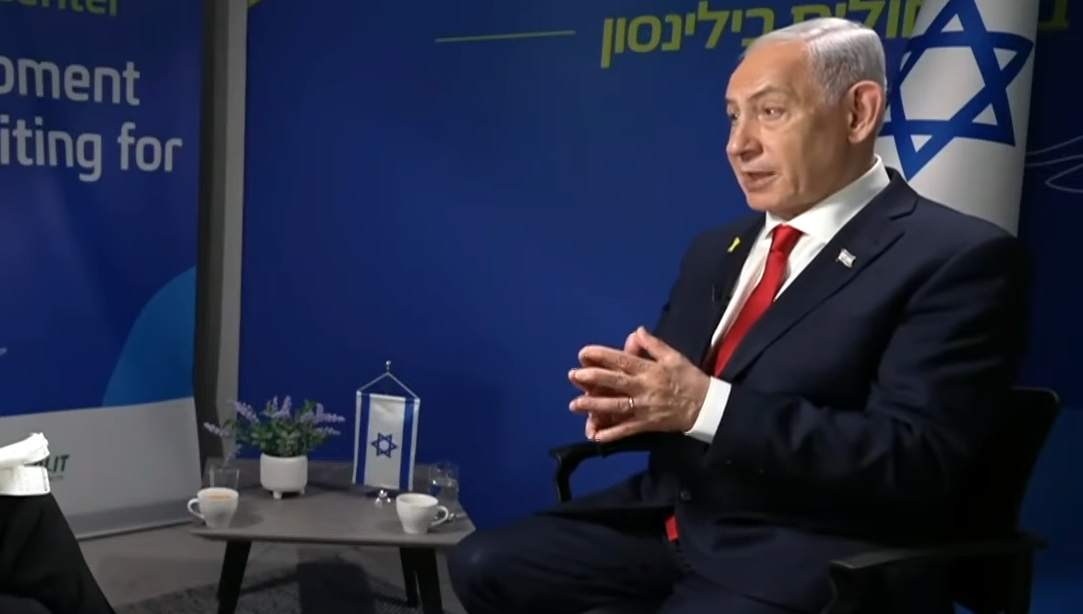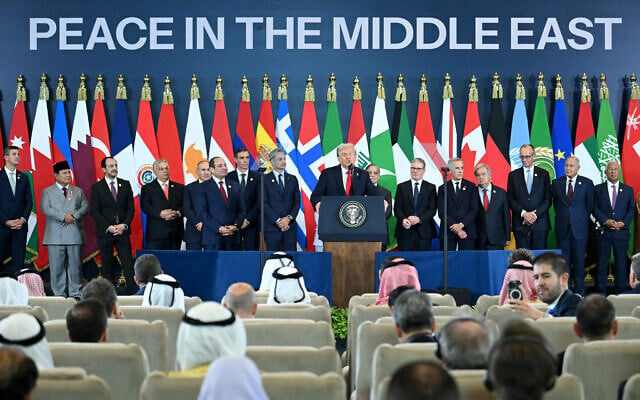Prime Minister Benjamin Netanyahu warned in an interview with CBS News on Tuesday that if Hamas doesn’t agree to disarm under US President Donald Trump’s Gaza peace plan, “all hell” will break loose.
“We agreed to give peace a chance,” said Netanyahu when asked by the US outlet how it can be said that the war is over while the IDF is still deployed in parts of the Gaza Strip and Hamas is reasserting control of the enclave.
The premier pointed to Trump’s 20-point plan, okayed by both Israel and Hamas, which stipulates that the Palestinian terror group must be disarmed and Gaza demilitarized, with no weapons factories operating inside the Strip and no smuggling over its borders.
“We agreed, let’s get the first part done, and now let’s give a chance to do the second part,” Netanyahu said, voicing hope that Hamas will hand over its arms peacefully and paraphrasing Trump’s threat that otherwise “all hell breaks loose.”
While Hamas has been greatly weakened, it has shown no signs of disarming so far, instead seeking to reassert its authority in the Gaza Strip by cracking down on groups that it sees as defying it. Hamas has killed at least 33 people in recent days, several of them in public executions.
Get The Times of Israel’s Daily Edition
by email and never miss our top stories
By signing up, you agree to the terms
Trump has said that if Hamas doesn’t uphold its side of the deal, “we will disarm them,” perhaps “violently.”
Under the first phase of the deal, Hamas on Monday released the 20 remaining living hostages and Israel freed some 2,000 Palestinian prisoners, including 250 terrorists serving life sentences.
However, Hamas initially only returned four of the bodies of the 28 dead hostages, prompting Israel to threaten sanctions. Hamas then turned over four more bodies on Tuesday night and reportedly promised another four on Wednesday.
Three of bodies that were returned Tuesday have been identified as hostages Uriel Baruch, Tamir Nimrodi, and Eitan Levy. The fourth was said to be of a Gazan, not a hostage, a security official told Israeli news outlets on Wednesday.
Asked what it would take for him to declare the war over, Netanyahu said: “I think that, for the foreseeable future, not only for Israel but for the free world, and for the civilized world, you have to maintain your ability to defend yourself, because freedom is not permanent, nor is it automatic. If you cannot defend free societies, they will be overtaken by authoritarian or totalitarian regimes.”
When the interviewer remarked that this sounds like Israel will be at war for another 100 years, Netanyahu disagreed, saying that “the way you purchase peace is through strength.” He touted the Trump-brokered normalization deals signed in 2020 with the United Arab Emirates, Bahrain, Morocco and Sudan, though the latter is indefinitely suspended.
US President Donald Trump (C) speaks during the Sharm El-Sheikh Peace Summit in the Egyptian Red Sea resort town of Sharm el-Sheikh on October 13, 2025. (SAUL LOEB / AFP)
“I made peace with four Arab states with President Trump when everybody said it wasn’t going to happen,” Netanyahu said, adding that this was made possible because the nations in question “showed me they really want peace with us.”
Trump has said that the Gaza peace deal could open the way for several other nations to join the accords. The US has long been working to bring Saudi Arabia and Indonesia into the framework, but they have insisted on there first being a commitment to a Palestinian state, something Israel has refused.
Nevertheless, Netanyahu said there could be more deals soon, without naming any countries.
“I think we have an opportunity to make peace with many, many more,” Netanyahu added. “And that, I think, would be the greatest gift we can bring the people of Israel, the people of the region, and the people of the world.”
Asked in the CBS interview — which comes as Netanyahu maintains his near-total boycott of Israeli media — about a remark Trump made at the Knesset on Monday that he isn’t “the easiest guy to deal with,” Netanyahu said, “Well, I hope he says that because I’m very tough on the matters that pertain to my country’s future. When I believe that what I’m asked to do is fine, I say [it] is, and when I think I have to say ‘no,’ I say it. And that’s my job. My job is to protect the Jewish state and assure the future of the Jewish people.”
Is The Times of Israel important to you?
If so, we have a request.
Every day, even during war, our journalists keep you abreast of the most important developments that merit your attention. Millions of people rely on ToI for fast, fair and free coverage of Israel and the Jewish world.
We care about Israel – and we know you do too. So today, we have an ask: show your appreciation for our work by joining The Times of Israel Community, an exclusive group for readers like you who appreciate and financially support our work.
Already a member? Sign in to stop seeing this
You appreciate our journalism

You clearly find our careful reporting valuable, in a time when facts are often distorted and news coverage often lacks context.
Your support is essential to continue our work. We want to continue delivering the professional journalism you value, even as the demands on our newsroom have grown dramatically since October 7.
So today, please consider joining our reader support group, The Times of Israel Community. For as little as $6 a month you’ll become our partners while enjoying The Times of Israel AD-FREE, as well as accessing exclusive content available only to Times of Israel Community members.
Thank you,
David Horovitz, Founding Editor of The Times of Israel


